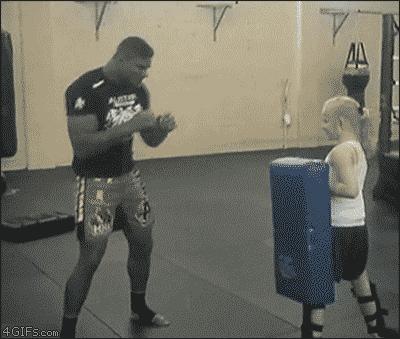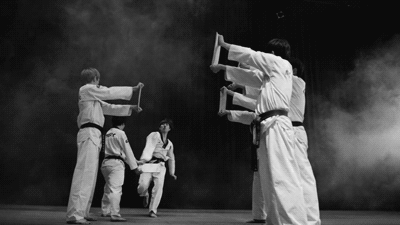Throughout my elementary experience, I was afraid to tell people that I practiced martial arts. I was too afraid that they would make fun of me or even worse ask me if I knew Jackie Chan.
However, once I reached college, I just didn’t care anymore. It was on my social media, it came up in conversation, and people knew it was the reason I missed class.
“Where’s Jasmine?”
“She’s always flying off somewhere.”
The reason I felt more confident talking about martial arts was because people my age or older, actually think it’s cool? That was crazy to me after years of ignorant teenage kids doing the ridiculous Daniel move from "The Karate Kid."
I’m currently getting ready to graduate college and on the treacherous job search. When I took my resume to my professor for revision, the first thing she asked me was, “Why isn’t martial arts anywhere on here?” I was pretty confused. There’s only so much space on a résumé and I didn’t think I needed to use martial arts for any of it. Nobody outside of the sport had really told me they admired what I did on a professional level. They normally just asked me “not to beat them up” or “to do a flip.”
Turns out there’s a whole list of reasons why martial arts can set you apart on a résumé and land you the job of your dreams. Here’s why martial arts is on my resume and should be on yours too.
It's the easiest icebreaker.
On my résumé, martial arts is the first thing you see after the "education" section and any employer who isn't a total jerk will automatically be interested. Anybody can say they played club soccer in the seventh grade, but not everybody can say they went to Ireland and won gold for their country. This is a perfect way to break the ice and talk about all of your accomplishments in a field you know plenty about.
Shows that you're committed.
Odds are, if you're even considering putting martial arts on your résumé, then you've had some pretty big accomplishments coming from your many years in the sport. There's way too many people who can say, "Yeah I did that up until the second grade." So don't be afraid to capitalize off of that. You're one of the rare ones and employers will be impressed by your ability to persevere.
Demonstrates leadership.
Martial arts is all about learning to be a leader once you reach a certain level and odds are, you'll have plenty of examples to draw from when an employer asks those tough situational questions. Extra points if you use stories with kids because everybody knows working with them can be difficult and the ultimate test of patience.
Their kid probably does martial arts.
You know that at some point of every child's life they consider doing martial arts as part of a camp program or because they saw Jaden Smith on screen and suddenly think that if they start training now, they'll be ready for "Karate Kid 4." If an employer says, "Oh wow, my kid does karate," then capitalize it. This is an instant connection! Ask about their kid and get a conversation going, people love talking about their kids.
Be a multi-tasker.
If you are a competitive martial artist at the top of your game, then you've probably had late nights in the dojo where you are crying internally, not because of your sensei's intense criticism, but because you have eight pages of an essay to write before midnight and really need to go home. You can bring this up in an interview and show that you have the ability to handle multiple responsibilities under intense pressure.
There's plenty of other ways you can play the martial arts card, but what's most important is that you use it. Don't put all your dependence on it or use it as a crutch to fall back on, but use it. And if you're not yet doing martial arts, but this seems like an awesome deal, start now and don't quit once you get to your yellow belt. (Hint: it's not very impressive.)
If someone tells you that you're wasting your time doing martial arts, then tell them that it's actually a necessary life and professional skill.

























